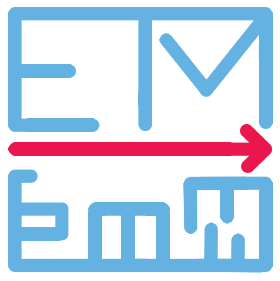Don’t Buy the Hype: Excessive Bill “Auditing” Hurts Workers’ Comp
At DaisyBill, we pride ourselves on helping providers obtain correct, consistent reimbursement for treating injured workers. But our mission to cut the waste and inefficiency out of workers’ comp billing and payment doesn’t only benefit the provider.
Employers, insurers, and their claims administrators shouldn’t waste time and resources on overpriced, inefficient bill auditing. While bill auditing supposedly protects payors from provider overcharging, its primary effect is to create needless friction — and profit for the auditing service.
Protecting Payors?
Mitchell Negotiation Services recently published a blog post touting the value of their bill auditing technology. In it, the author paints provider mistakes and abuse as a never-ending threat to employers’ and payors’ bottom lines.
In Mitchell’s view, that threat is best addressed by advanced software systems. Mitchell claims their technology can parse every provider bill more closely than ever, splitting hairs and catching errors that the usual bill review can’t. In Mitchell’s world, providers are getting away with a million little thefts every day, and only advanced software can stop it.
Without a hint of irony, Mitchell declares that even their own current tech isn’t enough to defeat the scourge of greedy/incompetent providers seeking unearned payment:
The auditing technology platform is based on rules and regulations from NCCI, fee schedule, Medicare and so on. Unfortunately, this does not catch all errors and misses bills when billing games are played. To take this a step further, auditing platforms need to consider combining medical domain knowledge with the technology to automate medical intelligence. Machine learning and AI will be the next leap forward in transforming auditing solutions in the industry.
Mitchell’s premise has serious problems:
- First, the implication that providers spend their time (as if they had any to spare) concocting new, undetectable ways to “play billing games” is paranoid at best, and offensive at worst.
- Second, workers’ comp billing and payment is complicated, and convoluted, and often frustrating — but it’s not quantum physics. While “machine learning and AI” offer exciting possibilities in many fields, provider billing errors don’t require a leap forward into a sci-fi future to address.
Accurate billing and payment simply require dependable technology, of the kind we already have.
Mutually Beneficial Billing Technology
DaisyBill’s Work Comp Wizard includes our OMFS Calculator, which instantly calculates reimbursements according to California’s Official Medical Fee Schedule. The OMFS can frankly be a real bear, but that’s exactly why we developed the software in the first place — so providers can bill with confidence in their bill’s accuracy.
This accuracy benefits the payor, too.
Unfortunately, we’ve met resistance from companies that profit from inaccurate billing. Certain third-party claims administrators refuse to embrace providers who submit their bills at fee schedule. Why? Because unnecessary bill review — like advanced “auditing” — raises the price of claims administration.
As long as some companies see reliable provider billing as a threat to their business, this kind of resistance will undoubtedly continue. But as employers realize the mutual benefits of working with providers who consistently bill accurately, workers’ comp will continue to improve.
Better For Providers = Better For Payors
Workers’ comp benefits from fewer barriers between providers and payors, not more.
DaisyBill clients have submitted over 300,000 second review appeals, collectively recovering over $28 million. Each of these appeals cost the payor time and resources to re-adjudicate, in addition to the bill’s full payment — demonstrating that a “deny first, ask questions later” approach ultimately backfires.
With excessive “auditing,” how many more denials will ultimately prove invalid, at the employer’s expense?
While we’re proud to help providers resolve billing disputes, our ultimate goal is to reduce disputes. Hyperactive bill auditing can only lead to more denials, more second review appeals, and further waste.
In the end, grasping for reasons to deny payment does not serve employers, insurers, and their claims administrators well.
Claims administrators don’t need to spend the time or money Mitchell suggests to ensure the accuracy of their payments. In fact, providers aren’t DaisyBill’s only clients. Payor bill reviews use our technology, too, because it works — and that’s good for all concerned.
If the premise behind auditing services is to spare no expense on “gotcha” technology to catch providers misbehaving, then these companies aren’t creating solutions. They’re simply starting a wasteful arms race between conflicting technologies, with injured workers caught in the middle.
If your goal is accurate workers’ comp billing, look no further than the OMFS Calculator, included with our Work Comp Wizard. Try it out for free, by clicking the button below.
TRY THE WIZARD
DaisyBill provides content as an insightful service to its readers and clients. It does not offer legal advice and cannot guarantee the accuracy or suitability of its content for a particular purpose.

%20rounded.png)



